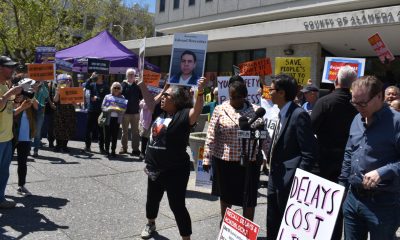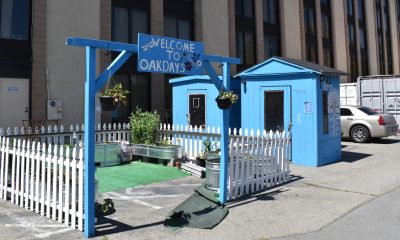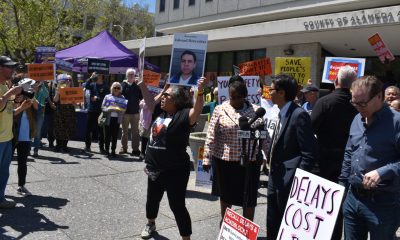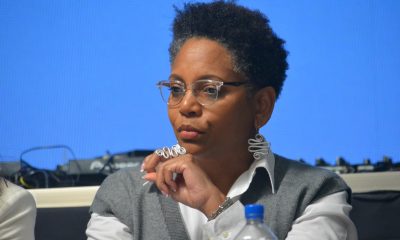Activism
Opinion: Case of Missing Man Underscores Need for Ebony Alert in California
There is no greater pain than that of a mother who loses her child — or whose child goes missing. Bettersten Wade has experienced both. Her 37-year-old son, Dexter Wade, disappeared on March 5 after visiting with her. She reported him to the police as missing the next week and began putting up fliers with his picture and going door to door to speak with neighbors. For months, the police in Mississippi told her they had no information on his whereabouts.
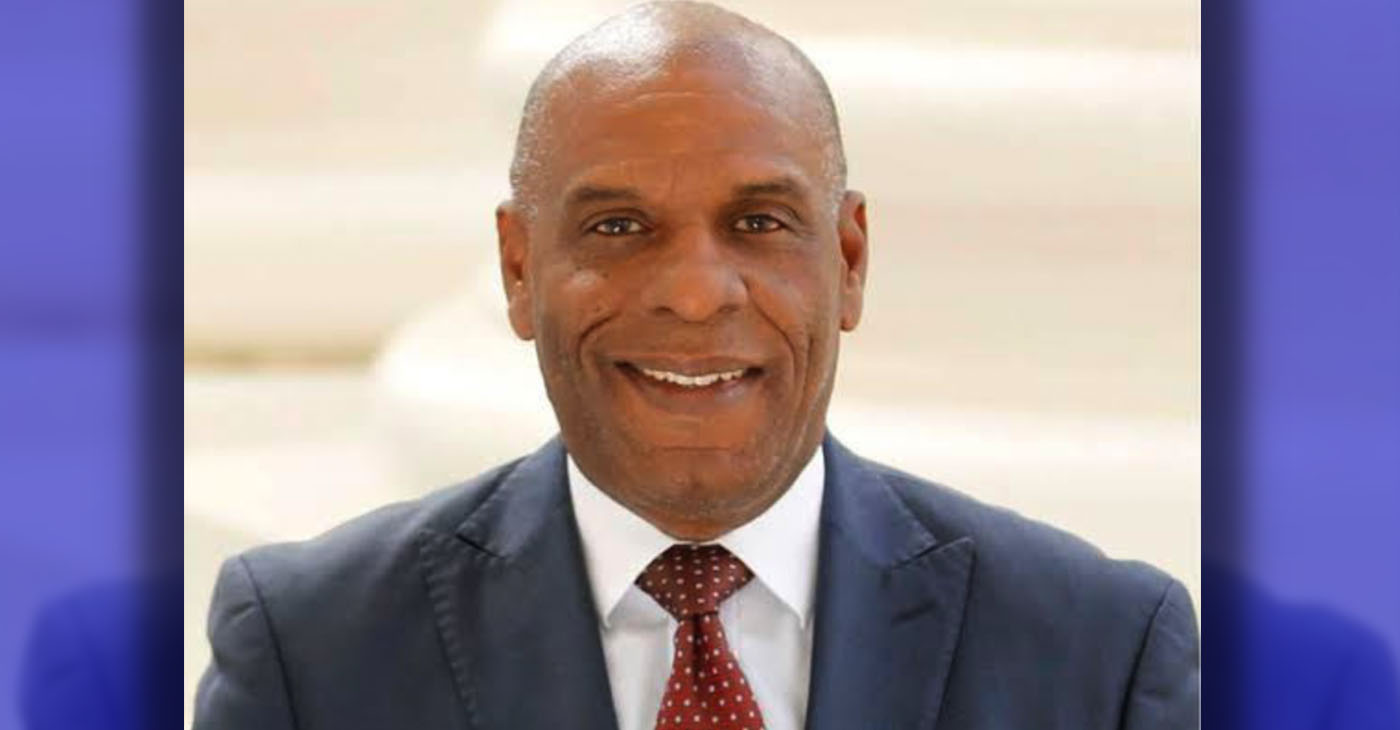
By Sen. Steven Bradford
Special to California Black Media Partners
There is no greater pain than that of a mother who loses her child — or whose child goes missing.
Bettersten Wade has experienced both. Her 37-year-old son, Dexter Wade, disappeared on March 5 after visiting with her. She reported him to the police as missing the next week and began putting up fliers with his picture and going door to door to speak with neighbors.
For months, the police in Mississippi told her they had no information on his whereabouts.
But in August, the police brought her devastating news. Her son, a Black man and father of two, had been killed the very night he went missing. Police say he was struck while crossing a highway by an off-duty Jackson Police officer.
The coroner identified Wade using a prescription medicine he was carrying as he had no identification. The coroner’s office claims to have shared his identity with the police, provided them with Wade’s mother’s contact information and asked them to notify her.
The Mayor of Jackson called the almost six-month delay a “communications failure” between the coroner and the police. The elder Wade and her attorney say the way authorities handled the death of her son is a civil rights violation and they want the federal Department of Justice to investigate.
Without the family’s knowledge or consent, the county buried him in a pauper’s grave with only a small metal sign displaying the number 672.
Although Dexter Wade was a grown man, you can draw a direct line to why California needs and will benefit from the newly signed Ebony Alert notification law which will help locate missing Black children and young women ages 12-25.
Black people make up a disproportionate percentage of all missing persons in the United States. However, instead of receiving a greater share of the police resources to find them, Black lives get less.
When a Black person goes missing, in a sense, they vanish twice. First, they disappear from their friends and loved ones. Second, they disappear from the police detective’s workload and from the news media’s attention.
This case speaks to the insulting reality of how Black lives are not a priority when they are missing. In the Dexter Wade case, authorities were clearly not looking even as they physically held his body.
Critics of the Ebony Alert say California should not have a special alert system just for African Americans. I would argue California should not need the Ebony Alert just for African Americans.
All people should be given equal value and equal resources should be utilized to find them. But that’s not happening. So, not only does California need the Ebony Alert, but the rest of the nation does as well.
About the Author
Sen. Steven Bradford is vice chair of the California Legislative Black Caucus. He authored SB 673, the Ebony Alert. He represents parts of southern Los Angeles County.
Activism
S.F. Black Leaders Rally to Protest, Discuss ‘Epidemic’ of Racial Slurs Against Black Students in SF Public School System
Parents at the meeting spoke of their children as no longer feeling safe in school because of bullying and discrimination. Parents also said that reported incidents such as racial slurs and intimidation are not dealt with to their satisfaction and feel ignored.

By Carla Thomas
San Francisco’s Third Baptist Church hosted a rally and meeting Sunday to discuss hatred toward African American students of the San Francisco Unified School District (SFUSD).
Rev. Amos C. Brown, president of the San Francisco NAACP and pastor of Third Baptist Church, along with leadership from local civil rights groups, the city’s faith-based community and Black community leadership convened at the church.
“There has been an epidemic of racial slurs and mistreatment of Black children in our public schools in the city,” said Brown. “This will not be tolerated.”
According to civil rights advocate Mattie Scott, students from elementary to high school have reported an extraordinary amount of racial slurs directed at them.
“There is a surge of overt racism in the schools, and our children should not be subjected to this,” said Scott. “Students are in school to learn, develop, and grow, not be hated on,” said Scott. “The parents of the children feel they have not received the support necessary to protect their children.”
Attendees were briefed last Friday in a meeting with SFUSD Superintendent Dr. Matt Wayne.
SFUSD states that their policies protect children and they are not at liberty to publicly discuss the issues to protect the children’s privacy.
Parents at the meeting spoke of their children as no longer feeling safe in school because of bullying and discrimination. Parents also said that reported incidents such as racial slurs and intimidation are not dealt with to their satisfaction and feel ignored.
Some parents said they have removed their students from school while other parents and community leaders called on the removal of the SFUSD superintendent, the firing of certain school principals and the need for more supportive school board members.
Community advocates discussed boycotting the schools and creating Freedom Schools led by Black leaders and educators, reassuring parents that their child’s wellbeing and education are the highest priority and youth are not to be disrupted by racism or policies that don’t support them.
Virginia Marshall, chair of the San Francisco NAACP’s education committee, offered encouragement to the parents and students in attendance while also announcing an upcoming May 14 school board meeting to demand accountability over their mistreatment.
“I’m urging anyone that cares about our students to pack the May 14 school board meeting,” said Marshall.
This resource was supported in whole or in part by funding provided by the State of California, administered by the California State Library via California Black Media as part of the Stop the Hate Program. The program is supported by partnership with California Department of Social Services and the California Commission on Asian and Pacific Islander American Affairs as part of the Stop the Hate program. To report a hate incident or hate crime and get support, go to CA vs Hate.
Activism
Oakland Ambassadors Strengthen Ties and Aid Efforts in Ghana
Oakland natives and esteemed members of the African American Sports and Entertainment Group (AASEG), Jonathan P. Jones and Dr. Maritony Efua Jones, recently embarked on a significant journey to Ghana as guests of the World Martial Authority Ghana. This trip signifies a crucial opportunity to bolster partnerships, explore new avenues of collaboration, and contribute to impactful initiatives in Ghana.
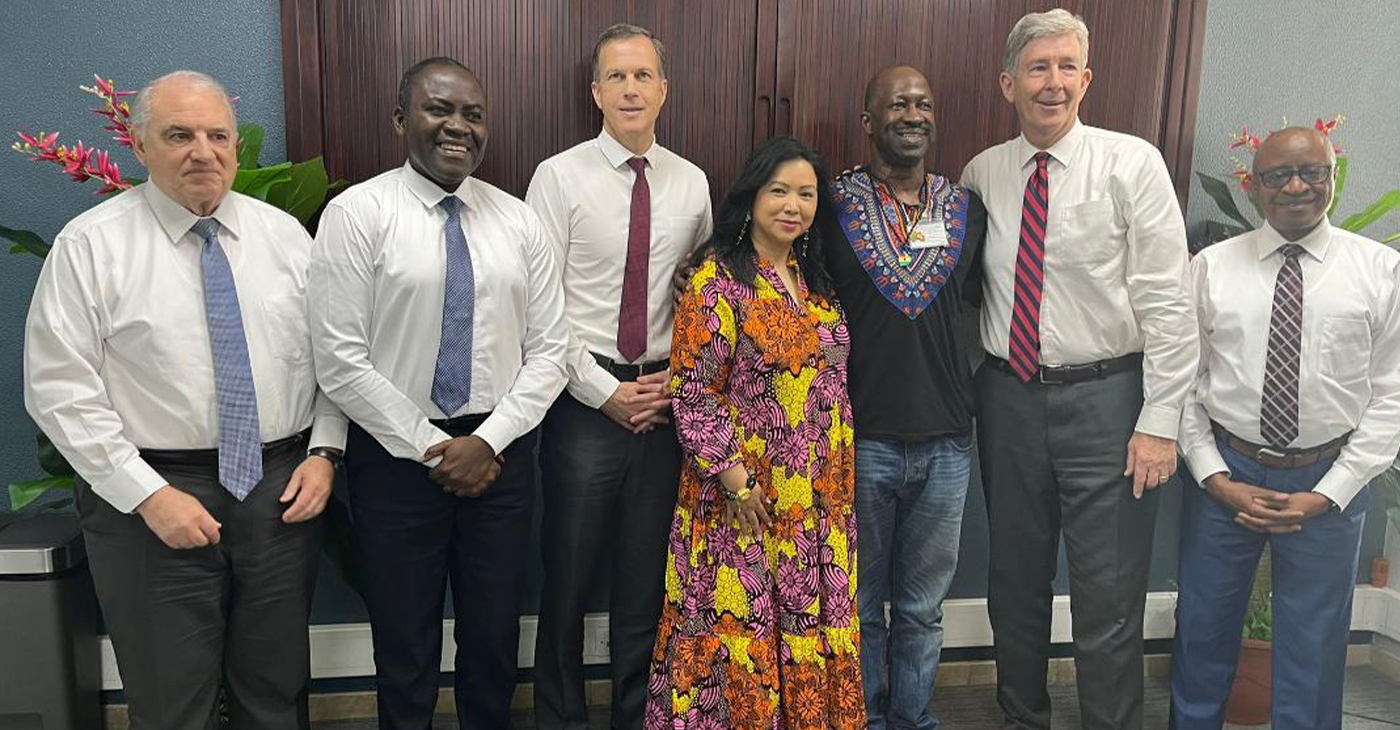
By Post Staff
Oakland natives and esteemed members of the African American Sports and Entertainment Group (AASEG), Jonathan P. Jones and Dr. Maritony Efua Jones, recently embarked on a significant journey to Ghana as guests of the World Martial Authority Ghana.
This trip signifies a crucial opportunity to bolster partnerships, explore new avenues of collaboration, and contribute to impactful initiatives in Ghana.
Upon their arrival at Katota Airport in Accra, Ghana, the Joneses were warmly received by His Royal Majesty Okatakyie Asafo Boakye III, the distinguished king of Sanzule Kingdom in the Eastern Nzema, and Etse Nyamedi of World Martial Authority, Ghana.
Nyamedi accompanied the Joneses to the city of Mepe, which had recently experienced flooding, to assess damages and engage with local leaders, elders, and youth regarding the city’s urgent needs after major floods last fall.
Key concerns and priorities identified by the community include comprehensive flood mitigation measures, agricultural support, housing initiatives, educational enhancements, improved healthcare access, and the development of communal recreational spaces.
The Joneses were also graciously invited to meet with leaders of The Church of Jesus Christ of Latter-day Saints at their headquarters in Accra. This meeting provided insights into ongoing humanitarian efforts in Ghana and explored avenues for collaboration to further assist Ghanaian communities.
The LDS leaders shared their prompt response to the recent flood, demonstrating their commitment to humanitarian aid by dispatching substantial supplies including medical provisions, sanitation items, blankets, and food to assist flood victims just four days after the disaster.
Additionally, Boakye extended a special invitation to the Joneses to his palace, where they were pleasantly surprised with a heartfelt recognition ceremony. Maritony Jones was honored as the Queen Mother of the Sanzule Kingdom in acknowledgment of her dedicated work, while Jonathan Jones was lauded and welcomed as the ambassador of the Sanzule Kingdom, symbolizing a meaningful homecoming to their ancestral land.
The visit not only strengthens ties between Oakland and Ghana but also underscores the collaborative spirit and commitment to meaningful progress and humanitarian endeavors shared by all involved parties.
Activism
Calif. Anti-Sex Trafficking Advocates Discuss Competing Bills, Strategies
Advocates from across California are challenging state officials and community leaders to support legislation that provides resources and services for survivors and victims of human trafficking, as well as assistance as they transition back into civil society. Some of those advocates are also calling for more effective state policy to curtail trafficking, a crime that has an outsized impact on Black children, particularly girls.
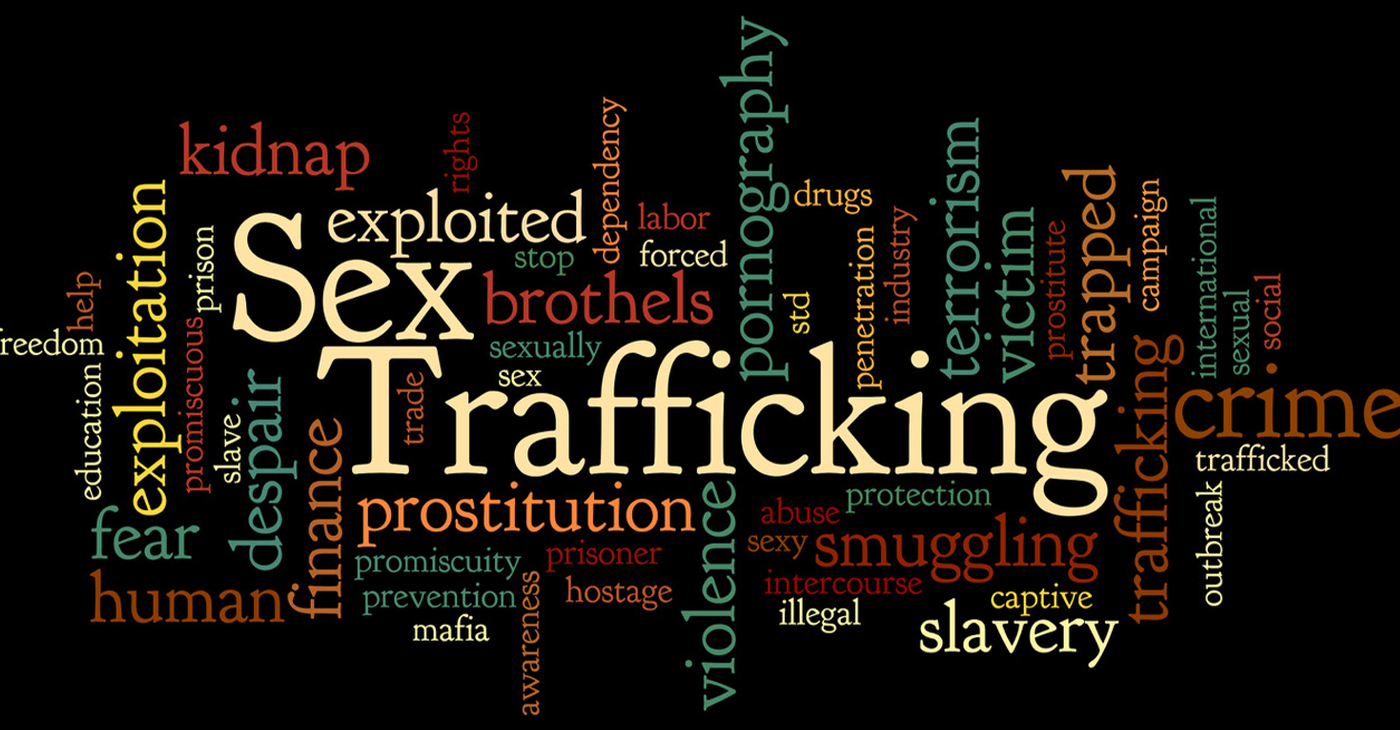
By Bo Tefu, California Black Media
Advocates from across California are challenging state officials and community leaders to support legislation that provides resources and services for survivors and victims of human trafficking, as well as assistance as they transition back into civil society.
Some of those advocates are also calling for more effective state policy to curtail trafficking, a crime that has an outsized impact on Black children, particularly girls.
According to the FBI, a report covering a two-year period found Black children accounted for 57% of all juvenile arrests for prostitution. In addition, 40% of sex trafficking victims were Black and 60% of those victims had been enrolled in the foster care system.
“It is time to hold the perpetrators who take advantage of our children accountable,” said the Rev. Shane Harris, a San Diego-based activist, former foster youth and founder of the Peoples Association of Justice Advocates, (PAJA), a national civil rights organization and policy think tank.
“It is time to send a thorough message that if you seek to buy a child for sex, you will pay the highest criminal penalties in this state,” added Harris who was speaking at a rally at the State Capitol earlier this month. Harris was speaking in support of Senate Bill 1414, authored by Sen. Shannon Grove (D-Bakersfield), which calls for people who buy sex from minors to be punished with a felony. The punishment includes a two-year prison sentence and a $25,000 fine.
Harris said the PAJA is the only civil rights organization in the state that supports SB 1414.
Harris urged other Black-led groups who favor anti-trafficking legislation more focused on criminal justice reforms (as opposed to stiffer penalties), to “join the movement.”
Many of those civil rights groups fear that SB 1414 could lead to the incarceration of more Black youth.
Those sentiments were echoed in a panel discussion organized by Black women advocates on April 26 to examine the cause and effects of human trafficking in California’s Black communities. The virtual event was hosted by the Forgotten Children, Inc, a faith-based nonprofit that advocates for survivors and victims of human trafficking through anti-trafficking campaigns and initiatives.
Panelists shared the psychological impact of sexual exploitation on youth and children in the long term.
Author and educator Dr. Stephany Powell shared statistics and information revealing that African American women and girls are the most trafficked nationwide.
Powell, who serves as the senior advisor on law enforcement and policy at the National Center on Sexual Exploitation said that national data indicates that sex trade survivors are disproportionately women of color. She stated that male survivors often go unnoticed because boys rarely report trafficked crimes.
Powell said that decriminalizing prostitution in California could increase human trafficking. She argued that Senate Bill 357, authored by Sen. Scott Wiener (D-San Francisco), which was signed into law in 2022 and legalized loitering for prostitution, caused a surge in street-level prostitution.
Panelist and psychologist Dr. Gloria Morrow shared opposing views on decriminalizing prostitution. She said that decriminalizing prostitution could help survivors gain access to state resources and support.
Despite opposing views, Powell and Morrow agree that the Black community needs resources and educational programs to address human trafficking.
-

 Community3 weeks ago
Community3 weeks agoFinancial Assistance Bill for Descendants of Enslaved Persons to Help Them Purchase, Own, or Maintain a Home
-

 City Government5 days ago
City Government5 days agoCourt Throws Out Law That Allowed Californians to Build Duplexes, Triplexes and RDUs on Their Properties
-

 Business3 weeks ago
Business3 weeks agoV.P. Kamala Harris: Americans With Criminal Records Will Soon Be Eligible for SBA Loans
-

 Activism2 weeks ago
Activism2 weeks agoOakland Post: Week of April 24 – 30, 2024
-

 Activism4 weeks ago
Activism4 weeks agoOakland Post: Week of April 10 – 16, 2024
-

 Community3 weeks ago
Community3 weeks agoAG Bonta Says Oakland School Leaders Should Comply with State Laws to Avoid ‘Disparate Harm’ When Closing or Merging Schools
-

 Community3 weeks ago
Community3 weeks agoRichmond Nonprofit Helps Ex-Felons Get Back on Their Feet
-

 Community3 weeks ago
Community3 weeks agoOakland WNBA Player to be Inducted Into Hall of Fame



